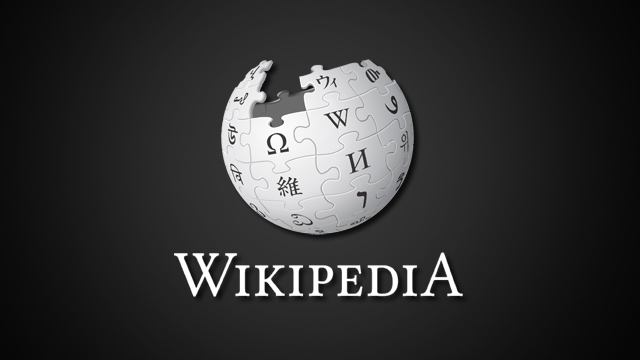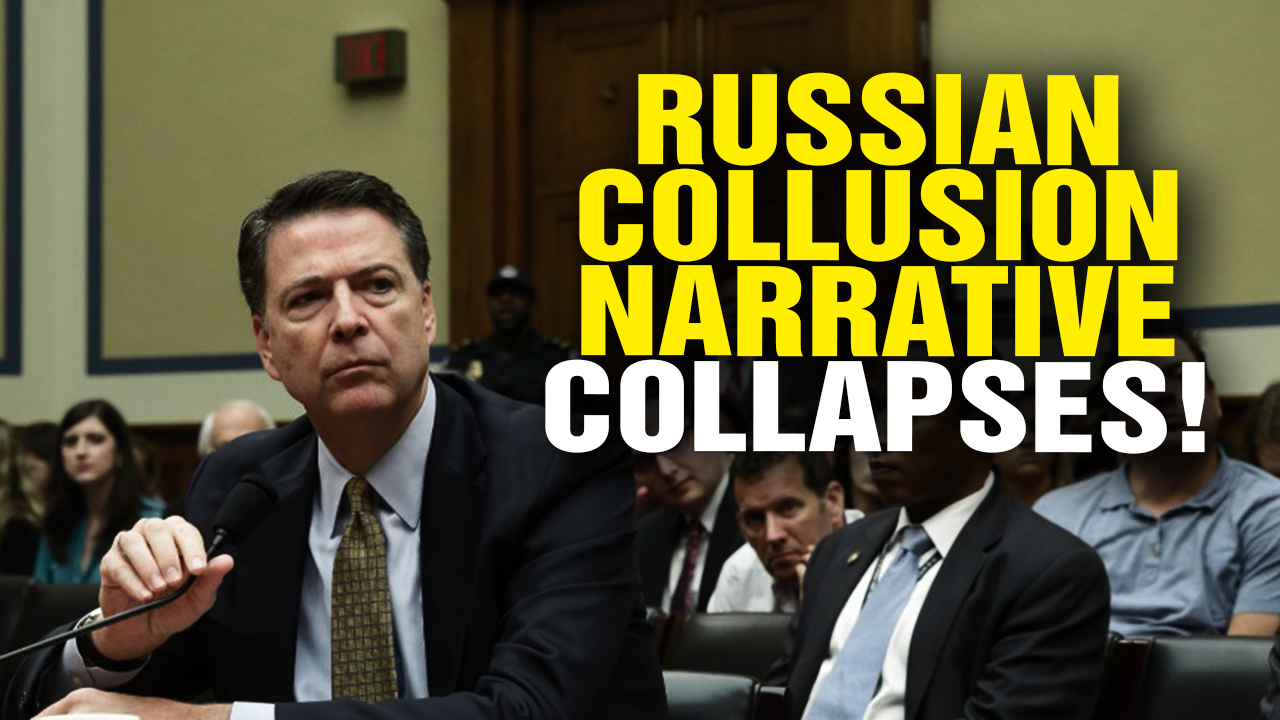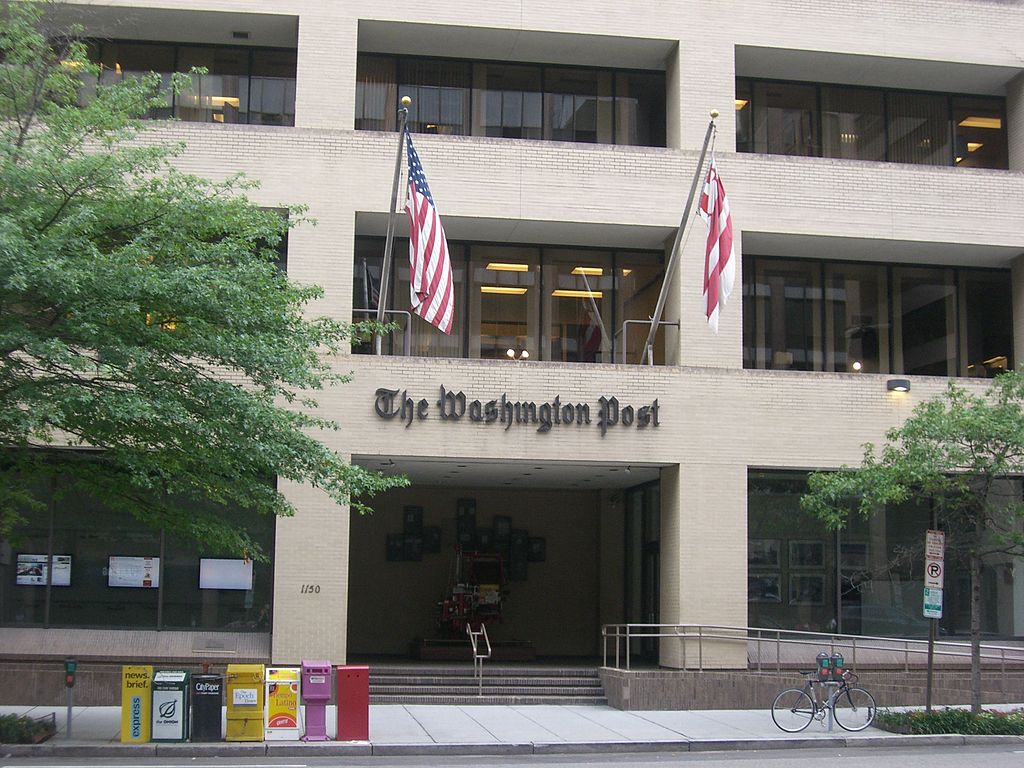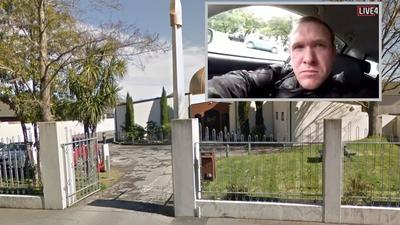Wikipedia: Rotten to the core?
04/08/2019 / By News Editors

For some time, I’d heard rumors that Wikipedia was not the open-source knowledge utopia it claimed to be. Despite a comprehensive set of rules replete with checks and balances and a seemingly open democratic editing process, stories of pay-for-play editing, character assassinations, ideologically-driven trolling, and other offenses against public knowledge suggested all was not right in Jimmy Wales’ empire. Authors and public figures in fields as diverse as Complementary and Alternative Medicine and progressive politics (including Deepak Chopra, Rupert Sheldrake, Gary Null, John Pilger, and George Galloway) have complained of persistent negative coverage on Wikipedia despite the site’s vaunted neutrality and the promise that “Biographies of Living Persons” are held to the highest standard. Efforts to have misinformation corrected were fruitless and their reputations have suffered as a result.
(Article by Helen Buyniski republished from PRN.fm)
This seemed implausible. How could a site with over 100,000 volunteer editors, with open access for anyone looking to get involved, be engaged in such widespread bias? As an investigative journalist and activist who has spent many years seeking the truth in a landscape of obfuscation and lies, I decided to find out exactly what was going on at Wikipedia.
First, Wikipedia no longer has over 100,000 editors. The number of active editors has been declining for over a decade, even as fewer new editors join the site. MIT researchers found the “complex bureaucracy” and “hard-line responses to newcomers’ mistakes” were the primary reasons why would-be editors opted not to stick around. Meanwhile, the site’s core of “active” editors decreased from 2007 to 2015 by 40%, dropping to about 30,000.1 In 2017, Purdue University reported that just one percent of those editors had made 77% of the total edits.2 The rate of changes rejected climbed from 6% in 2006 to 25% in 2010,3 and the site bans 1,000 IP addresses a day.4 “Edit wars” are resolved by silencing them. Editors who hang on long enough to become administrators capable of freezing and deleting entries no longer feel compelled to abide by Wikipedia’s rules, and statistics show that the number of editors approved to become administrators has plummeted since 2007.5 Wikipedia is an oligarchy with all the problems that entails. One set of rules exists for the user-citizen, and one for the ruling class of administrators and senior editors.
Wikipedia has a convoluted and lengthy policy on conflicts of interest, a policy that seems to lengthen whenever another pay-to-play edit scandal breaks. And there have been a lot of these scandals. Disclosing one’s conflicts of interest is not even mandatory but a “generally accepted standard that editors should attempt to follow.”6 The unwritten law seems to be that paid editors should only engage in conflict-of-interest work if they can do it without getting caught and embarrassing the site. If you can’t obey the rules, at least break them quietly. Many paid editors do opt to follow the policy, disclosing their conflicts of interest and liaising with third-party editors to modify their clients’ entries, but many more slip through the editorial process unnoticed.
Quid Pro Quo
In 2013, a British Petroleum representative was found to be supplying Wikipedia editors with company-approved text that eventually comprised 44% of BP’s page. The editing took place while a civil trial was underway which could have resulted in BP paying out billions of dollars to victims of the 2010 Deepwater Horizon oil spill. The process itself – PR flack supplies biased “info” to an unaffiliated editor, who then inserts it without disclosing its origins – is common on Wikipedia and does not actually violate the rules, as BP was quick to point out.7 Indeed, multiple editors jumped to the defense of the editor working for BP, suggesting they were also being paid or merely wanted to keep their options open.
Roger Bamkin, a trustee of the Wikimedia Foundation UK and a PR consultant, used his Wiki position to place his PR client, the country of Gibraltar, on Wikipedia’s “did you know” front page feature 17 times during August 2012. As a “Wikipedian in Residence,” Bamkin was not permitted to operate with a conflict of interest or to edit the pages of the organization he worked with, but nothing in the rules prevented him from promoting that page. Wikipedia co-founder Jimmy Wales called Bamkin’s behavior “wildly inappropriate” and denounced it in a double-speaking editorial. Basically, he told future emulators to be more circumspect in their behavior, because the “disaster for our reputation” would be immense if it got out that Wikipedia editors were “paid shills” instead of “free and independent scribes.”8 Wales understands the importance of one’s online reputation, which makes it even more unconscionable that his site has been weaponized to destroy the reputations of so many people.
During the time Bamkin was being encouraged to resign, another Wikipedian in Residence, Max Klein, was discovered to be selling “Wikipedia Editing as a PR Service” on his website, UntrikiWiki, boasting that he had “the expertise needed to navigate the complex maze surrounding ‘conflict of interest’ editing on Wikipedia.”9 In October 2013, editors found hundreds of “sockpuppet” accounts linked to one company – WikiPR, which claimed to employ not only garden-variety editors but an admin capable of freezing and deleting pages. WikiPR claimed over 12,000 clients, from household names like Viacom and Priceline to minor firms whose pages were frequently deleted for not meeting Wikipedia’s “notability” standards. Once again, Wikipedia management condemned the practice, not because it was dishonest, but because “companies engaging in self-promotional activities on Wikipedia have come under heavy criticism from the press and the general public, with their actions widely viewed as inconsistent with Wikipedia’s educational mission.”10 In other words, they’re saying, stop making us look bad.
In a bizarre coda to the WikiPR affair, Cooley LLP, the law firm contracted by the Wikimedia Foundation to send a cease-and-desist letter to WikiPR, was editing its own articles as well. Cooley’s letter misrepresented Wikipedia’s terms of service, claiming “sockpuppeting” and paid editing were both expressly prohibited by the site when the whole point of the WikiPR scandal was that it exposed the giant regulatory loopholes permitting paid advocates to make Wikipedia their promotional playground. Rounding out the letter were ominous yet empty threats – the foundation was “prepared to take any necessary legal action to protect its rights,”11 as if any nation had laws on its books prohibiting the paid editing of crowdsourced online encyclopedias – suggesting that Cooley partners spent more time editing their firm’s Wikipedia article to remove embarrassing facts like a partner’s support for California’s Proposition 8 than reading up on relevant case law.12
Rules Are Made to Be Broken
Wikimedia UK only won its nonprofit status in 2011, and the Bamkin scandal drew intense criticism from the sector. Nonprofit Quarterly took him to task for violating the foundation’s tenets, noting that Gibraltarpedia was the second major scandal in the UK foundation’s year as a nonprofit. Trustee chairman Ashley van Haeften resigned the previous month when he was banned for life from editing Wikipedia, having clashed with several editors over the hosting of explicit images on the site.13 The American arm of the Wikimedia Foundation has been involved in even more questionable behavior. Wikimedia project director Sarah Stierch was fired in January 2014 after a screenshot emerged as proof she was selling her services as an editor.14 Amidst the fallout from the WikiPR scandal and Stierch’s firing, it was decreed that all paid Wikipedia editors must disclose their status. However, without a way to enforce such an edict, the measure is ultimately hollow. The Wikimedia Foundation’s own Financial Dissemination Committee “laments that the Wikimedia Foundation’s own planning process does not meet the minimum standards of transparency and planning detail that it requires of affiliates” and points to an absence of goals and budget transparency as setting a bad example for the rest of Wikipedia.15 If Wikimedia can’t even follow its own transparency guidelines, where else is it falling short?
The Wikimedia Foundation solicits donations from Wikipedia users every year, even though its expenses ($2 million to run hosting and servers) are vanishingly small compared to its profits. Wikimedia has increased its spending over 1000% since 2008 and sits on $97.6 million in assets as of 2016.16 The money has primarily gone toward expanding the Wikimedia bureaucracy, which grew from three permanent employees in 2006 to 174 by 2013.17 Fifteen executives took home six-figure salaries in 2015, and Executive Director Lila Tretikov scored a six-figure golden parachute after she was forced to resign for attempting to conceal the development of the Wikipedia “Knowledge Engine,” a major search engine project intended to drive traffic to Wikipedia by wresting market share from Google. VP of Product Erik Moeller was rewarded with $208,306 the same year for causing the Wikipedia equivalent of a strike. When the bungled 2013 launch of the new VisualEditor interface led editors to rebel and disable the feature, Moeller “superprotected” his department’s next feature, called Media Viewer, so that editors could not disable it. Many ceased contributing in protest; 1,000 others signed a letter of protest to Wikimedia, which was ignored.18 The parallels between well-paid Foundation execs “failing upwards” and “too big to fail” investment bankers landing on their feet are difficult to ignore; Wiki volunteers may not lose their homes when the experts make mistakes, but they’re still being asked to donate both time and money to a parasitic administrative class that ultimately serves as an instrument of control.
“Charitable organizations” like Wikimedia are barred from operating for the benefit of “private interests,” with no part of a group’s “net earnings” accruing “to the benefit of any private shareholder or individual.”19 Yet Wales was so fond of his Wikimedia credit card he was relieved of it in 2006, after it was revealed that he was billing $1,300 steak dinners and other outsize expenses to the “charity.”20 Wales, like some of his editors, takes Wikipedia’s rules as mere suggestions. From minor tweaks to entries belonging to his famous friends21 to more extensive reputational rehab for a girlfriend22 to wholesale rewriting of his own history,23 he has earned the “god king” nickname bestowed upon him by his adoring public. Openly disregarding Wikipedia’s laws while enforcing them on everyone else, Wales has made Wikipedia a microcosm of the society that birthed it. Is it any wonder that the same injustices so rife in America today are playing out on our computer screens as well – that the wealthy and well-connected are subject to different rules than the rest of us?
The relationship between the Wikimedia Foundation and Wales’ for-profit company Wikia so flagrantly violates the letter and spirit of nonprofit regulations that Wikipedia gadfly Greg Kohs actually brought it to the attention of the IRS in December 2006. Kohs has thoroughly documented the incestuous relationship between Wikipedia/Wikimedia – ostensibly nonprofit – and Wikia, the for-profit ad-covered version Wales founded in December 2004 with Angela Beesley, a Wikimedia Foundation board member. All three Directors on Wikia’s original Board – Wales, Beesley, and Secretary-Treasurer Michael Davis – also sat on the Board of the Wikimedia Foundation, as did many later Wikia employees.24 Davis had worked with Wales since 1994 and actually helped him set up the non-profit Foundation to manage Wikipedia in 2003.25 In 2006, Wikia shared hosting and servers with the Wikimedia Foundation, also “donating” $6,000 worth of office space to the nonprofit,26 and Wikimedia was from 2009 to 2010 actually paying rent to Wikia using funds donated by the Stanton Foundation, sneaking tax-deductible dollars through to the supposedly unaffiliated for-profit company.27 Shortly after Wikia was founded to house community-built wikis for subjects not considered notable under Wikipedia rules (“Wookieepedia” for Star Wars enthusiasts was an early favorite), Wikipedia began sprouting links to Wikia pages, which heavily inflated Wikia’s advertising revenues with every click due to Wikipedia’s high Google ranking. Wikipedia users attempted to institute measures that would have nullified that revenue boost, only to be overruled by Wales.28 Wikimedia Foundation donors Amazon.com and the Omidyar Network both also contributed large sums to the fledgling Wikia. Amazon supplied the entirety of its second round of venture capital funding and was rewarded with hundreds of thousands of Wikipedia links to its sites, including IMDB.29 Meanwhile, the Wikimedia Foundation hired the Omidyar Network’s Matt Halprin to its Board of Trustees as part of a $2 million “package of support” grant from Omidyar just three years after Omidyar had invested $4 million in Wikia. The Foundation dismissed the conflict of interest as if it was absurd to think that these two companies founded and run by the same people might have something in common.30 Wales was replaced as Wikia’s CEO in June 2006 by Gil Penchina (formerly of eBay) after investors got wind of Wales’ efforts to expense the same $1,300 dinner bill Wikimedia had cut up his company credit card for to Wikia.31 Still Chairman of the firm, Wales oversaw the rollout of user-powered search engine Wikia Search in January 2008, but the project tanked the following year32 despite glowing media coverage until the end.33 Penchina disappeared in October 2011, still owed $30,000 by Wales, according to Wales’ divorce papers.34 Beesley quit in February 2012. Perhaps unsurprisingly, given this history, Wikia is due to change its name to Fandom in 2019.
Big Brother, Big Pharma, Big Money
The US government has been meddling in Wikipedia since at least August 2007, when a tracing program developed at the Santa Fe Institute called Wikiscanner discovered that computers at CIA headquarters had been used to make edits to entries on the US invasion of Iraq and the biographies of former CIA head William Colby and former presidents Ronald Reagan and Richard Nixon. An FBI computer had also been used to edit the entry on the US’s Guantanamo Bay detention facility.35 Voting machine manufacturer Diebold was caught deleting 15 paragraphs critical of its product,36 while the Vatican and the British Labour Party were also prolific editors.37 Since then, the intelligence agencies have had to camouflage their edits or outsource them to third parties. Unfortunately, the demise of Wikiscanner in 2016 left a hole in Wikipedia accountability that has yet to be filled.38
Big Pharma’s fingerprints are all over Wikipedia. Editors linked to AstraZeneca were caught posting negative material to competitors’ pages and adding promotional material to their own.39 Wikiscanner caught Abbott Labs removing information from its entry about possible side effects of two of its most popular drugs, the weight loss pill Meridia and the arthritis pill Humira.40 An analysis of the entry for Purdue Pharmaceuticals shows it has been through several editing cycles in which information on the addictive potential of the company’s infamous opiate Oxycontin was added, then removed, then added again, though any editors working for Purdue seem to have slunk away in the aftermath of their employer’s settlement with the state of Kentucky for $24 million in damages from widespread Oxycontin abuse in the state.41
The New York Police Department was caught whitewashing dozens of Wikipedia entries in March 2015 when Wikiscanner technology linked hundreds of edits to computers at NYPD headquarters. Most of the edits sought to downplay crimes committed by department officers and cast the victims of such as more threatening or criminal than they were. An entry on the death of Eric Garner, the Staten Island man whose choking death at the hands of Officer Daniel Pantaleo helped launch the Black Lives Matter movement, was altered to make Garner appear much more threatening than he was, while the chokehold which killed Garner was reduced to a “headlock.” Another user attempted to delete the entry on Sean Bell, who was gunned down by police as he left his bachelor party with two friends; the officers fired over 50 bullets at the three men and even then-commissioner Ray Kelly – who’s never heard of excessive force – condemned the incident. NYPD editors got busy with the NYPD entry itself, deleting large chunks from the “police misconduct” and “scandals and corruption” sections, and the entry on “stop and frisk” was larded with explicatory language.42
Pay to Play
What appears on the surface to be a simple case of pay-to-play editing can mask a deeper conflict of interest, as in the case of the Stanton Foundation. In 2011, Stanton donated $3.6 million to Wikimedia, then the largest one-time gift in the foundation’s history. Wikimedia then used $53,000 of that donation to hire Tim Sandole as a Wikipedian-in-Residence at Harvard University’s Belfer Center. Despite warnings from Wikimedia to avoid over-representing his own institutional viewpoint,43 Sandole used his edits to promote the work of Graham Allison, the head of the Belfer Center, whose wife Liz Allison runs the Stanton Foundation. More troublingly, by taking money from Wikimedia to edit Wikipedia, Sandole punched a hole in the firewall that is supposed to separate the two, threatening the Foundation’s nonprofit status.44 Sandole really put his foot in it when he appeared in his official Wikimedia-funded Belfer Center capacity at a campus event promoting Barack Obama over Mitt Romney in the 2012 election.45 Nonprofits are forbidden from campaigning for political candidates. He also failed to disclose his financial backers – who were paying over 100 times the amount that got poor Sarah Stierch fired! – and made a number of edits that violate Wikipedia’s hallowed Neutral Point of View to political articles like the Cuban Missile Crisis, but these crimes are practically rites of passage for fledgling Wikipedia editors.
Stanton and Wikimedia have a history of financial entanglement. Two Wikipedia editors who modified the biographical article of Foundation namesake Frank Stanton to remove inconvenient disclosures like his foundation’s historically massive gift to the Wikimedia Foundation were hired by Wikimedia not long after making their guard-dog edits. One, Pete Forsyth, was brought on to design the Wikipedia Public Policy Initiative, which Allison would subsequently use as institutional cover for Sandole’s hire.46 Allison herself returned to the scene of the crime in 2016, making extensive edits to the Stanton Foundation article. While most conflict-of-interest edits are reverted and publicly shamed when found out, Allison seemed to think her foundation’s massive donations had bought her special privileges, defending her edits despite having removed informational and well-sourced material. Allison was correct in her assumption – her edits remain in the article, with all attempts to revert them blocked; Wales refused to address the issue on his talk page. 47
Former Novell computer scientist Jeff Merkey claimed Wales personally offered to “use his influence” to ensure Merkey’s Wikipedia article “adhere[d] to Wikipedia’s stated policies with regard to internet libel” in exchange for a “substantial donation” to the Wikimedia Foundation in 2006.48 Merkey’s article included the gritty details of multiple lawsuits in which he was involved, including one from his former employer. After Merkey donated $5,000, his page’s edit history showed the entry was blanked and restarted by Wales, who warned other editors to “be extra careful here to be courteous and assume good faith.” The entry also gained “protected” status, meaning only administrators could make edits.49 Wales denied the allegations, stating he would “never offer, nor accept any offer, whereby a donation would buy someone special editorial treatment in the encyclopedia.” Merkey claimed he was banned by Wikipedia’s Arbitration Committee after he ceased contributions to the Wikimedia Foundation; he returned briefly under other user names, but was banned every time, while his page was eventually deleted. If Wales is offering naked pay-to-play editing, the list of benefactors to the Wikimedia Foundation takes on a much more sinister significance – are companies like Boeing, Goldman Sachs, Bank of America, Exxon Mobil, GE, Pfizer, Bristol-Myers Squibb, and GlaxoSmithKline giving money out of charitable impulses, or because they get something in return?50 What about George Soros, David Koch, Mark Zuckerberg, and Warren Buffett, all of whose names were on a leaked list of individual donors in 2011?51 What does Jimmy Wales have to offer these men who have everything?
Wikipedia Takes Washington
The first major pay-to-play Wikipedia scandal dates back to February 2006, when it was discovered that US Congressional staff were scrubbing the biographies of their politicians – removing broken campaign promises,52 scandals, and other undesirable details and adding “glowing” tributes and favorable information.53 At the same time, negative information was appended to the biographies of their opponents. Some ambitious staffers were replacing their candidates’ biographies wholesale with staff-authored versions. Joe Biden, Diane Feinstein, Norm Coleman, Conrad Burns, and Tom Harkin were named in early reports, later joined by Mike Pence, Gus Gutknecht, and David Davis. Wikipedia responded initially by banning Congressional IP addresses and later by creating a Twitter feed to document Wikipedia edits made by congressional staffers.54
Wikipedia’s initial heavy-handed reaction to the congressional edits may have stemmed from the IRS’s rules that bar nonprofit foundations from “voter education activities with evidence of bias that (a) would favor one candidate over another; (b) oppose a candidate in some manner; or (c) have the effect of favoring a candidate or group of candidates.”55 Wikipedia does not always toe the line in its political coverage. The article on Donald Trump, for example, gives ample space to discussions of the “Russiagate” investigation and even “Impeachment efforts,” though no impeachment proceedings have passed preliminary hearings; the Hillary Clinton article glosses over most of the controversies that dogged her political career, offering a sanitized account of the “email controversy” while entirely omitting the revelations from the WikiLeaks DNC document dump. “Some commentators” are given space to air their speculation on how Trump might be impeached without a vote, yet no voices are quoted taking Clinton to task for her role in rigging the Democratic primary. Nor do we find references to her role in plunging the once-progressive nation of Libya into violent chaos, or in appropriating billions of dollars’ worth of donations meant for Haitian hurricane victims. Trump is taken to task for “comments and actions [that] have been perceived as racially charged” – an accusation with no citation – but Clinton’s racially-charged “super predators” comment is missing from her page. There is clearly a double standard at work.56 57 An October 2016 article on Wikipedia’s role in that year’s election might point to the answer: Clinton’s page was “protected,” while Trump’s was not. Trump’s page was edited more than three times as often as Clinton’s during the campaign season. 58
When Google search results returned “Nazism” as the ideology of the California Republican Party just a week before that state’s primaries, Google was quick to blame Wikipedia vandalism, explaining that the Google “knowledge box” that contained the offending term is often populated with Wikipedia text.59 The “vandalism” had remained on the party’s Wikipedia page for six days before it was corrected, hidden in a “piped link” where the link text and “alt text” read differently; meanwhile, other edits were reverted within a few minutes, suggesting this one was allowed to persist, deliberately hidden so it would only appear in Google search results.60
Such apparent political bias makes more sense in light of the fact that the Wikimedia Foundation contracted the Minassian Group, run by Clinton Foundation Chief Communications Officer Craig Minassian, to train Wikimedia’s own C-level employees, directors and managers in media strategy for the year 2014-2015.61 Minassian was further tasked with conducting a “communications audit” in 2016.62 Some editors among the Wikipedia rank and file were unhappy about having their territory politicized,63 particularly given how much of the foundation’s money was going to Minassian.64 Sashi Manek claims it was precisely this Clinton Foundation hire that kept the Foundation’s page clean throughout election season of any references to its crimes against the people of Haiti during the period the Clintons were supposedly helping with hurricane recovery.65
Going further, it appears Minassian was sent in to lay the groundwork for the post-election focus on the Russiagate conspiracy. The account “Sagecandor” appeared days after the election and commenced a frenzy of edits on matters related to Clinton’s 2016 election talking points, from “Russian interference in the 2016 election” (631 edits) to “Murder of Seth Rich” (275 edits), “Comey memos,” “kompromat,” and “efforts to impeach Donald Trump.” The new account also created dozens of book reviews – books critical of Donald Trump and books written by CNN commentator and noted fabulist Malcolm Nance, whose own biography was cleaned up to remove some of his more egregious falsehoods. The account nominated many of its own book reviews for placement in the coveted “Did You Know” module on Wikipedia’s front page. Sagecandor was eventually revealed to be a “sockpuppet” of “CIRT,” an admin who had been banned under multiple usernames for conflicts of interest and hostile behavior toward other editors. Continuing that pattern, Sagecandor participated in no fewer than 19 disciplinary actions over three months, seemingly colluding with a power admin to get the cases against it closed speedily. In June 2017, rather than being banned like its predecessors, Sagecandor was given auto-patrolling and page moving powers, allowing it to edit protected entries (like the Russiagate material) without someone else signing off on the edits.66 Some admins are open about their political beliefs on their profile pages, like BullRangifer, a “Skeptic” who writes that anyone who does not believe that the Trump campaign colluded with Russia to win the 2016 election “lack[s] the competence needed to edit American political subjects” because they are victims of “fake news.” The “fake news” link, of course, points to a Wikipedia page authored in part by the admin who wrote the original paragraph, but circular logic does not seem to bother this Skeptic.67
Wales’ newfound concern about “fake news,” which became the bête noire of the Western media establishment during the 2016 election, also makes much more sense in the light of the Minassian connection. The same Wikipedia editor who wrote so much on “Russian interference in the 2016 election” also made 904 edits to “fake news websites” as the election tipped toward Trump. Another Minassian operative was dispatched to Vice in the guise of a Wikipedia editor to give a chummy interview about how the site handles “fake news.”68 In my opinion, the preponderance of election-related edits were coordinated with a Clinton-linked consultancy hired by the Wikimedia Foundation; if this is the case, such collusion should rule out nonprofit status for Wikimedia.69
Wales’s latest project is dedicated entirely to the problem of Fake News. WikiTribune is a crowd-sourced journalism and fact-checking platform that pairs professional journalists with volunteers, paying the pros via a crowdfunding campaign while tasking the volunteers with fact-checking and editing the articles. “Those who donate will become supporters, who in turn will have a say in which subjects and story threads the site focuses on. And Wales intends that the community of readers will fact-check and subedit published articles,” according to a Guardian piece that reads like a PR release (most likely because Wales sits on the Board of Guardian Media Group, another conflict of interest he dislikes disclosing).70
WikiTribune takes several cues from Minassian’s 2016 media audit, which recommended that Wikipedia focus on positioning itself as an island of neutrality in a roiling sea of bias. Wikipedia dissenter Kingsindian points out the logical flaws in that model: “Would anyone accept a ‘newsroom’ where anonymous contributors with undisclosed conflicts of interest argue about things, where expertise is irrelevant, where contributors’ work is not paid, there is no editor or copy-editor, and then nobody takes responsibility for the final product?”71 Meanwhile, Google is not the only platform that uses Wikipedia as a fact-checker. YouTube is rolling out Wikipedia links embedded in videos that will permit viewers to fact-check those videos’ claims in real time, ostensibly to combat “conspiracy theories” and “fake news.” Wikipedia has also largely supplanted the scandal-ridden Snopes in Facebook’s fact-checking arsenal.72 With Facebook now assigning “trust ratings” to users based on their record of sharing approved news stories, Wikipedia’s judgment is likely to become more significant in determining what users see on their newsfeeds.73
The Philip Cross Affair
Sagecandor’s UK equivalent seems to be “Philip Cross,” who ranks number 308 in the list of most active Wikipedia editors after 15 years on the site. He has spent the equivalent of full-time working hours editing Wikipedia for the past five years.74 A few of his “victims,” including UK MP George Galloway and former Uzbekistan ambassador Craig Murray, began investigating the prolific editor after they noticed him systematically terrorizing their pages. Cross’ victims shared a common skepticism about the UK’s foreign policy, especially with regard to Syria. With seemingly unlimited free time to edit, Cross removed favorable information and added negative material, amounting to 1,796 edits on Galloway’s page alone.75 Cross attacked anti-war and anti-imperialist personalities like John Pilger, Vanessa Beeley, and Jeremy Corbyn on Twitter at the same time he was tweaking their Wikipedia pages with lies and distortions and favorably editing the articles of pro-establishment journalists like Luke Harding and Oliver Kamm. By personally attacking his “targets,” he embodies a conflict of interest. Murray pointed out the similarities between the views espoused by Cross and those of Wales himself,76 who did not take the comparison well. “If your worldview is shaped by idiotic conspiracy sites, you will have a hard time grasping reality,” Wales sneered after repeatedly asking for – and receiving – proof of Cross’s malicious edits. Murray also pointed out that British intelligence has bragged about operating “sockpuppets” to push the “official” narrative in the media, and Cross’s open flouting of the rules seemed like the behavior of someone accustomed to life above the law (on the Wikipedia talk page for Galloway, he openly admitted his conflict of interest, then returned to editing Galloway’s article).77 Cross’s behavior eventually resulted in his being permanently banned from all topics related to post-1978 British politics, but with the stipulation he can appeal the ban in six months. As a parting shot, the editor who initially brought Cross’ misbehavior to the Arbitration Committee’s attention was also banned from “linking to or speculating about the off-wiki identity of other editors.”78 Cross has already violated his topic ban repeatedly, forcing a reluctant ArbCom to ban him from the site entirely for a week,79 and Galloway understands there are too many ways around the ban for it to effectively stop the abuse, especially after learning that Cross works “in synchronicity” with a group of editors who share the IP address of a Rupert Murdoch media property.80 Still, he hopes that by bringing the Philip Cross affair to media attention he can disabuse people of their belief that Wikipedia is some sort of oracle of truth, free from political bias and other ulterior motives. A 2014 YouGov report showed 64% of British people trust Wikipedia editors at least “a fair amount” to tell the truth – more than trust Murdoch’s Times or even the BBC81 – so the unorthodox collaboration between obsessive editor and old-media outlet seems to be paying off. While Galloway avoids reading his vandalized Wikipedia profile, he can’t seem to avoid it – speakers at his public appearances regularly read from it to introduce him. If exposing Philip Cross can destroy the public’s faith in Wikipedia’s neutrality, he says, his online ordeal will have been worthwhile.
Cross’ choice of Galloway as his number-one victim provides a clue as to who was directing his campaigns of editorial terror. In 2016 Galloway released The Killing$ of Tony Blair, a documentary chronicling the former UK PM’s rise through (and, as Galloway sees it, destruction of) the Labour Party; his collusion with the US government to launch the illegal Iraq war, leading to hundreds of thousands of civilian deaths; and his post-political career burnishing the public image of authoritarian regimes. The film is a scathing indictment of Blair’s war profiteering; Galloway and many of the people he interviews call for Blair to be tried for war crimes at The Hague. Unfortunately for Galloway, Blair is a close friend of Wales, whose wife Kate Garvey previously worked as his diary secretary. Wales is fiercely defensive of his famous friends, and Blair’s own Wikipedia entry barely mentions Blair’s vast financial wealth (37 homes – 10 houses and 27 flats – worth £27 million, plus millions of pounds distributed through a network of companies);82 his PR work on behalf of dictators and human rights abusers in Kuwait, the UAE, Colombia, Egypt, Mongolia, and Kazakhstan;83 his utter failure to support Palestinian rights during his time as Middle Eastern peace envoy; and the human consequences – over half a million civilian casualties – of the Iraq invasion he continues to defend.
Reputation Rehab for Dictators
In June 2011, the Wikimedia Foundation actually financed a group of paid editors in Kazakhstan, providing a $16,600 grant to Rauan Kenzhekhanuly’s fledgling WikiBilim project.84 WikiBilim began as an effort to expand the tiny Kazakh language Wikipedia and progressed to cleaning up English-language articles for high-ranking Kazakh subjects, up to and including the country’s dictator, Nursultan Nazarbayev, and his family.85 Wales awarded Kenzhekhanuly the first ever “Wikipedian of the Year” award that same year, despite protests that he was whitewashing the reputation of a repressive dictatorship. In response, Wales denied everything, claiming “Wikimedia Foundation has zero collaboration with the government of Kazakhstan. Wikibilim is a totally independent organization.” When questioning persisted, he resorted to threats and banned the questioners from his talk page.86 Wales’ objections are disingenuous, considering that Kenzhekhanuly is not only a former government official but also a former employee of the government propaganda station National TV Agency run by Nazarbayev’s daughter. WikiBilim is also financed by the Samruk Kaznya State Investment Fund, the sovereign oil wealth fund run by Nazarbayev’s son-in-law. Also editing English-language articles on Kazakhstan was Portland Communications, a lobbying firm which has previously been caught editing negative material out of Wikipedia entries for clients.87 Portland is run by a former advisor to Tony Blair, who was reportedly paid $13 million for his own part in the rehabilitation of Kazakhstan’s reputation. The merest suggestion of a link between Blair’s work for the Kazakh government and Wikipedia was dismissed in typical overcompensatory fashion by Wales, who banned such discussion from his page (“My personal life has nothing to do with Kazakhstan!”).88
Kazakhstan has been on an expensive and expansive mission to improve its reputation abroad, hiring multiple PR firms and sending out infomercials on CNN International. Human Rights Watch states that the government is “considering legislative amendments that appear to propose even further restrictions on freedom of religion” and “impunity for torture and ill-treatment in detention persist.”89 While high level government officials claim the country has a free press, journalists risk arrest, police harassment, lawsuits, and heavy fines for criticizing the regime. Journalists can be imprisoned for up to seven years on the charge of “disseminating knowingly false information.”90 “Inciting national discord” is another charge frequently brought against activists, journalists and other writers. A journalist who called for sanctions against Kazakh officials who commit human rights violations was stabbed on board a train by an unknown assailant. The editor of an independent newspaper was banned from journalism for three years as part of his sentence on politically-motivated money laundering charges. An editor and the founders of another independent newspaper were convicted of defamation. Two activists were sentenced to five years imprisonment for protesting land reform proposals, and another remains in prison serving a 12-year sentence. In 2017, the regime convicted at least 22 people on charges of “inciting religious discord” while placing three-month bans on several Protestant and Jehovah’s Witness churches; a proposed law would further restrict religious teaching, proselytizing and publishing.91 In 2011, the same year WikiBilim’s founder was named Wikipedian of the Year, police massacred at least 14 protesters during an oilfield strike that turned into a riot, highlighting the poor relations between the regime and labor unions; the government responded by declaring a state of emergency and restricting access to journalists.92
After helping Kazakhstan reposition itself as a modern investment mecca, Wales was chosen in December 2014 (along with World Wide Web inventor Tim Berners-Lee) to receive the United Arab Emirates’ “Knowledge Award,” a $1 million technology prize invented for the occasion. Wikipedia users swarmed his talk page to protest both the country’s appalling human rights record and Wales’ apparent indifference. Wales finally snapped, “Every penny of the money will be used to combat human rights abuses worldwide with a specific focus on the Middle East and with a specific focus on freedom of speech / access to knowledge issues. Of course.”93 though when the Daily Dot suggested he was only turning to philanthropy to muffle the backlash due to his taking money from a(nother) repressive dictatorship, Wales demanded a correction.94 The UAE regime is notorious for flogging homosexuals, arresting rape victims, and using migrant workers as literal slave labor in the construction of its lavish luxury projects. It also “arbitrarily detains and in some cases forcibly disappears individuals who criticize the authorities”95 and regularly tortures both citizens and foreigners96 it has detained. In March 2018, the regime sentenced a human rights activist to ten years’ imprisonment on trumped-up charges including using social media to “publish false information that harms national unity.”97 Since March 2015, the UAE has partnered with Saudi Arabia in a lopsided assault on Yemen, the poorest country in the region, killing upwards of 7,000 civilians and wounding over 10,000.98 Armed with the finest and most expensive US weaponry, the Saudi-UAE coalition has blockaded the port city of Hodeidah in violation of international human rights law, placing the lives of 22 million Yemenis who depend on food aid at risk.99 Perched on top of billions of dollars’ worth of oil, the UAE can buy powerful friends, whether they run the US government or Wikipedia.
The Register pointed out that for Wales, “starting a foundation” with his Emirati blood money was a great way to reap the reputational benefits of “charity” while retaining control of the cash, which may have been Wales’ goal.100 Wales seems to like retaining control of prize money, even when the prize is one he’s supposed to be giving away. Two years after Kenzhekanuly was named Wikipedian of the Year, the Kazakh insider hadn’t seen a dime of the $5,000 that was supposed to accompany the award, nor had 2013’s winner, a Nigerian user known as Demmy.101 In 2014, Wales opted to honor Ukrainian student activist Ihor Kostenko, who was shot dead during the US-backed Euromaidan riots that culminated in the overthrow of Ukraine’s democratically-elected government and its replacement with a far-right fascist regime. Choosing Kostenko permitted Wales to reframe the dead Wiki editor’s life as a propaganda narrative – tragically cut down in his prime, all “because he wanted Ukraine to be led by people with a patriotic spirit”102 – and distract Americans from the fact that their government was arming the Nazis marching through the streets of Kiev.103
Ill-Fated Charities
Wales’ surface proclivity for charity work clashes with his outspoken adherence to the Objectivist “philosophy” of Ayn Rand, which venerates individualism to the point of selfishness and bows to an absolute, inflexible rationality. Wales’ first wife, Pamela, told W he had actively discouraged her from pursuing a career in nursing during their marriage because “to him, altruism was evil.”104 His serial charity establishment is perhaps best understood in a mercenary context – by adopting the identity of a chronic do-gooder, he escapes the scrutiny that might accrue to the stereotypical internet billionaire who spends more time chasing tail than saving whales. Objectivism also explains the tendency of Wales’ charitable endeavors to end badly, as most recently occurred with The People’s Operator (TPO), a mobile communications firm that supposedly donated ten percent of users’ bills and a quarter of its earnings to charities of the user’s choice. In practice, only about 3.8% of revenue made it to charity in 2016.105
Wales was brought in by TPO founder Andrew Rosenfeld in January 2014 as Co-Chairman and Executive Director of Strategy and Digital Community, essentially a famous face to raise the profile of his company in the runup to a public offering.106 Rosenfeld was implicated in the Cash for Honours scandal in 2006, having loaned £1,033,000 to Tony Blair’s Labour party and found himself – along with seven of the other 11 businessmen who funded Labour’s 2005 General Election campaign – on Blair’s short-list for a life peerage;107 Blair-linked PR firm Portland Communications handled the publicity for both Wales’ hire and the share offering. TPO was a money-losing proposition from the beginning,108 but Wales’ backing encouraged enough investor confidence to net the firm £20 million in an IPO on the UK’s junior AIM market. After Rosenfeld died suddenly the following February, Wales took over as CEO, pulling a $400,000 annual salary while TPO’s value remained stagnant.109 To accompany TPO’s US rollout, which he assured investors would send its valuation north of £2 billion within 4 years, he tacked on a “viral” social network/donation platform110 to draw new customers in place of traditional marketing and advertising. When the carrier bungled the switch from a 3G to 4G network, leaving some customers without service for weeks at a time,111 financial losses accelerated. Wales stepped down as Executive Chairman in 2017; in June 2018, TPO sold off the same US customer base Wales had valued at billions of pounds for a bargain-basement £700,000 to stave off creditors.112 Within two weeks, Wales left the near-bankrupt husk of TPO to “concentrate on his other interests.”113 All the while TPO was posting year after year of losses, the press sang its praises, promising its fortunes would turn around at any moment. One couldn’t fault them for their optimism – they probably got their information from the TPO Wikipedia article, which was created and maintained by a company employee.114
TPO wasn’t Wales’ first foray into the charity realm. In December 2009, he partnered with then-girlfriend Andrea Weckerle to launch CiviliNation, a vaguely-defined initiative to combat online harassment and character assassination. The irony of Wales’ involvement in such an organization appears to have eluded him. CiviliNation’s 2011 financial disclosures showed 74% of expenses paid to Weckerle, as well as 82% in 2012 and 80% in 2013.115 In 2013, he helped launch model Lily Cole’s “altruism-based social network” Impossible.com, where users post their wishes to be granted by benevolent strangers. Cole, a multimillionaire, snared £200,000 of taxpayer-funded grants intended for the needy,116 rather perverting the whole charitable order by taking from the poor to give to the comfortably-off. A Huffington Post profile notes that “Impossible doesn’t fulfill the needs of people who are truly desperate – you won’t see a post from someone who is starving, for example” and Cole is not so detached from reality that she cannot understand the truly desperate may not be in a position to post their cries for help on the latest smartphone.117 One wonders if Wales’ charitable endeavors have not deliberately been chosen to prove – in true Objectivist style – the uselessness of charity.118
Moral Relativism for Dummies
UK PR firm Bell Pottinger was caught in December 2011 burnishing the Wikipedia entries of its clients, including the former president of Zambia and South African arms manufacturer Paramount Group, and adding negative information about its clients’ enemies, including journalist Clare Rewcastle Brown, the sister-in-law of then-UK Prime Minister Gordon Brown.119 Ten accounts, responsible for hundreds of edits, were suspended, and Wales stated he was “highly critical of their ethics,” adding that he had “never seen a case like this.”120 By 2016, Bell Pottinger was back on Wikipedia, editing articles for South African firm Oakbay Investments as part of a racially inflammatory PR campaign that positioned Oakbay’s wealthy Indian owners, the Gupta family, as victims of “white monopoly capital” even as public scrutiny of their influence in President Jacob Zuma’s government increased. The resulting scandal took down both Bell Pottinger and Zuma. 121 It is not a stretch to suggest that the current racial unrest in South Africa can be partially laid at the feet of Bell Pottinger, the Guptas, and their disingenuous crusade against “white monopoly capitalism,” a term they popularized in an astroturfed social media campaign to promote their company and obscure its disproportionate influence within the Zuma government.
Bell Pottinger employees were caught on tape boasting of their ability to “sort” negative Wikipedia articles and manipulate Google search results to drown out negative coverage, and Wales was “astonished at the ethical blindness of Bell Pottinger’s reaction” to getting caught.122 But Minassian had proposed Wikipedia get involved in just this type of business operation in its 2016 media audit by suggesting the site introduce “a breaking news Twitter feed that pushes out neutral content when controversy breaks” – essentially a full-time distraction engine to be switched on in times of crisis. Wikimedia Executive Director Katherine Maher says Wikipedia “should be about creating information.”123 The Wikimedia Foundation actually paid a public relations firm to conduct a study concluding Wikimedia is the largest “participatory grantmaking” fund, then link to the Wikipedia definition of “participatory grantmaking” that uses an article from the same public relations firm as one of its only sources. Wikimedia was forced to issue a correction replacing the word “research” with “report,” as in “report that they commissioned,” as in “designation they paid for.”124 Creating information, indeed.
Wales’ wife’s firm, Freud Communications, regularly edits its own Wikipedia page125 – founded by a friend of Tony Blair, it enjoys supralegal status in the Wikipedia class hierarchy – and publishes a magazine called Baku for the daughter of Azerbaijani dictator Ilham Aliyev.126 It’s not surprising, then, that in January 2014, the Azerbaijani regime launched a “WikiDays” project through a youth organization it controls called IRELI Public Union. In partnership with Wikipedia Azerbaijan, instructors taught participants how to edit and protect articles with an eye toward the “principles of propaganda” – with the end goal of “encourag[ing] the youth to use Wikipedia in a correct manner, to protect interests of Azerbaijan in Wikipedia and prevent distortion of information about Azerbaijan.”127 The Aliyev regime also works with the Podesta Group, whose co-founder John Podesta chaired Hillary Clinton’s 2016 presidential campaign and served as Chief of Staff to Bill Clinton,128 and hired the ubiquitous Blair to seal a pipeline deal. In 2017, the Azerbaijani government sentenced 25 journalists and activists to lengthy prison terms following politically-motivated show trials. Torture of prisoners is common, as is harassment of suspected LGBT individuals. In May 2017, authorities permanently blocked the websites of a number of independent and opposition media outlets, citing “national security threats.”129 One wonders why, if Wikipedia is so amenable to servicing the needs of authoritarian governments, Turkey went the route of banning the site altogether. Surely they can afford to buy their way into Jimmy Wales’ good graces.
It seems that wherever Tony Blair goes, Wales follows. In 2012, Blair facilitated the Qatari royal family’s purchase of a stake in British hotel group Coroin.130 The Qatar Foundation soon became one of the top 20 donors to the Wikimedia Foundation, contributing upwards of $100,000 in 2013, and the Qatar Foundation’s Wikipedia article soon undertook a makeover at the hands of “Jmgrayling,” seemingly a Grayling PR employee. Grayling had only recently taken over the Qatari account from Bell Pottinger, where user “Annikabenn” had been busily editing the Qatar Foundation’s article for her own firm.131 Like the UAE, Qatar treats its migrant laborers like slaves, confiscating passports and documents so that they cannot leave, withholding payment of wages, and mandating a sponsorship system that forbids them from changing employers.132 The country also blocks access to its only independent news website from its two internet service providers.133
Wikipedia has a pattern of shutting out anti-establishment points of view on controversial topics, and it is here that it becomes important to distinguish between the traditionally-understood concept of Truth and Wikipedia’s version. Wikipedia relies on consensus, not ultimate Truth – the more sources support a particular view, the more likely that view will prevail. Wikipedia’s rules on what constitutes a reliable source have evolved over the years to exclude all “alternative” media outlets, particularly where politics and health are concerned. Even publications like Mother Jones and the Nation, which barely deviate from the mainstream, are consigned to the no-man’s-land of unreliable sources, while Vox and Mic – which didn’t exist 10 years ago – enjoy a place of privilege in the Wikipedia editor’s toolbox.134 Thus placing their finger on the scale, Wikipedia ensures editors come to contested pages with viewpoints already slanted toward the establishment narrative. A Harvard Business School study purported to show that opposing political factions moved toward the center over time in a consensus model, but they assumed a level playing field that simply does not exist in Wikipedia.135 When only mainstream sources count, status quo is easily mistaken for Truth.
The Croatian language Wikipedia exemplifies one danger of a consensus-focused model. Over the past decade, a group of far-right ideologues gradually seized control of the site in an internet putsch so thorough that the Croatian Minister of Education now actively discourages students from using it, warning “that a large part of the content of the Croatian version of Wikipedia is not only dubious but also [contains] obvious forgeries, and therefore we invite them to use more reliable sources of information.” Somehow, he still includes “Wikipedia in English and in other major languages of the world” in “reliable sources,” clearly not grasping the reason Croatian Wikipedia went so far off the rails.136 In 2009, fewer than 10 conservative administrators began consolidating their hold on power, banning and suspending certain editors for their liberal or moderate views on hot-button topics. Much of the controversial material centers on the Ustaša, a fascist group that operated from 1929 to 1945, serving as a puppet government under the Third Reich and massacring hundreds of thousands of political dissidents, Serbs, Jews, Roma, and other racial and ethnic minorities. Their crimes have all but disappeared from Croatian Wikipedia, and other articles have also been changed to reflect a strong bias against Serbs and LGBT people.137 The situation remains unresolved because to “fix“ it would require rewriting the rules of Wikipedia, in which consensus – not truth – is the goal. If Croatian Wikipedians find “collection camp“ more accurate a term than “concentration camp“ to describe the wartime prisons of Eastern Europe where racial and ethnic minorities and dissidents were rounded up and worked to death, Wikipedia can’t step in and change that consensus without running afoul of its entire ecosystem of rules. Ultimately, politically-motivated historical revisionism is no different than scientific Skepticism, except one is considered permissible in polite company.
Alternative Medicine Under Siege
Holistic health professionals are subjected to an online Inquisition when they attempt to edit false statements and libel out of their profiles only to have the edits immediately reverted and their life’s work dismissed. It was Dr. Gary Null’s investigation into this phenomenon that first alerted me that Wikipedia was playing fast and loose with the facts beyond of the political realm, and I use him here as an example not to sing his praises but because his case is such a clear example of the site’s bias. Null is a board-certified clinical nutritionist who has conducted over 40 clinical studies on lifestyle and diet, more than anyone else in his field. He hosts the longest-running daily non-commercial radio program in history and for 12 years ran the most popular show on WABC. He has published over 700 articles, many in peer-reviewed journals, and has been invited to present his findings at scientific conferences. His research showed humans could not only survive but thrive on a diet wholly devoid of animal protein. His documentaries, including Death by Medicine, the Drugging of Our Children, and Seeds of Death, have won more than 276 awards, placing him among the country’s top documentary filmmakers. He has counseled tens of thousands of people over his 50-year career, never charging a penny. None of these achievements are in his Wikipedia bio, which focuses instead on his divergence from medical orthodoxy and accuses him of quackery. I did not merely take Null’s word at face value when evaluating his statements against those of the Wikipedia page he has been wrestling with for the better part of a decade. Instead, my investigation revealed a pattern of systemic bias that has the entirety of Wikipedia’s medicine and science coverage in its thrall.
Wikipedia’s article on Null is theoretically subject to the strictest standards of verifiability as a Biography of a Living Person. Editors working on Null’s behalf have pointed out that the primary source for the majority of false and libelous information on his page is “Quackwatch,” the personal website of Stephen Barrett, a discredited former psychiatrist who has made it his life’s purpose to “debunk” alternative and natural health practitioners. Such a site does not meet Wikipedia’s guidelines for a reliable source. In Wikipedia’s own words, “Anyone can create a personal web page or publish their own book, and also claim to be an expert in a certain field. For that reason, self-published media, such as books, patents, newsletters, personal websites, open wikis, personal or group blogs (as distinguished from newsblogs, above), content farms, Internet forum postings, and social media postings, are largely not acceptable as sources. Never use self-published sources as third-party sources about living people, even if the author is an expert, well-known professional researcher, or writer.”138 But Barrett’s acolytes, a group of ideologically-driven Wikipedia editors calling themselves Skeptics, revert every edit that attempts to correct the record on Null. They stonewall attempts to delete his page and block editors who make repeated efforts to remove the defamatory material. Attempts to take the matter to higher authorities are persistently rebuffed.
After Null and his lawyers gave up on correcting individual facts within the article, they nominated it for deletion. They reasoned that surely a person who was dismissed as a quack by so many editors should not be deemed worthy of a page in the first place. However, half a dozen Skeptics circled the wagons and invoked “WP:SNOW,” a declaration that the motion literally had a snowball’s chance in hell of passing, after less than 36 hours of deliberation. The “judge” who sentenced Null to indefinite detention without a trial in the Wikipedia gulag sided with the Skeptics before anyone else could get a word in.139 The article shows clear evidence not only of bias but of awareness of that bias, with a notice marked “Please read before starting” alerting new editors to the presence of “fringe theories and pseudoscience” and linking to the pages instructing editors on “how Wikipedia deals with fringe views.”140 Such prejudicial editing instructions turn Wikipedia’s editing process into a kangaroo court, effectively dismissing the mountains of evidence supporting Null’s work in favor of the unsupported allegations of a few biased editors.
There was an extended discussion among Wikipedia editors on how to treat Quackwatch as a source. One camp suggested that if Barrett was such an expert, surely his views could be found in other publications considered more reliable; other users acknowledged the point, but maintained that Quackwatch was “often the only or best source available,” and should be treated as reliable because Barrett has been quoted in other media considered reliable. When someone brought up Barrett’s bias against alternative and natural medicine, stating that he was holding these therapies to a higher standard of efficacy than conventional modern medicine, they replied that this was to be expected, as he was a scientific Skeptic. According to these editors, Barrett’s bias represented a “legitimate and necessary form of double standard” of the sort practiced at Wikipedia itself – “the more extraordinary a claim, the heavier is the burden of proof demanded.” The same senior user suggested that any editor who attacks Quackwatch should be placed under observation in preparation to ban. “Attacking such reliable sources is a pretty obvious symptom that one’s POV and ideologies are screwed up.”141 Guerrilla Skepticism on Wikipedia’s Susan Gerbic, who has taught dozens of Skeptics how to edit Wikipedia articles, is borderline fanatical in her motivations for editing: “we’re not doing this project for us, we’re doing this project for the world,” she gushes to fellow Skeptics, sharing how “awesome” she felt after inserting the word “quackery” into the first paragraph of Wikipedia’s homeopathy article.142 In another video, she shows off a t-shirt reading “Big Pharma Shillin’ “ to audience applause.143 These are not neutral editors, and it is extremely unlikely such ideologically motivated actors can put aside their biases to weigh in on the edits of others. Skepticism appears to be official policy at Wikipedia.
Skeptics vs. the Facts
Barrett has spent 40 years attacking anyone involved in holistic health practice, while admitting he has never studied any natural therapeutic systems because they “don’t make sense.”144 When his opinions are given the barest scrutiny, they fall apart. He simply does not have the scientific literature on his side, and cannot be considered a reliable source just because he is quoted as an expert in outside publications. By that logic, New York Times reporter Judith Miller would be considered a reliable source on Iraqi weapons of mass destruction. Her “intel” from the operative codenamed Curveball was quoted by not only other media outlets but Vice President Dick Cheney and Secretary of State Colin Powell! Yet Miller’s faulty intelligence led to over a million casualties and more than 10 million people internally displaced in Iraq, where no weapons of mass destruction were ever found. The Wikipedia community’s unquestioning acceptance of Quackwatch is causing another kind of damage, not only to the practitioners who lose their livelihoods as a result of Barrett’s character assassination but to the millions of people who might have sought out potentially life-saving therapies if they hadn’t read something disparaging about them on the fifth most popular site on the web.
Dr. Dean Ornish, for example, has reversed heart disease in patients so sick they were told they would die without a transplant, yet Quackwatch dismisses his work because (it claims) “there’s virtually no science” in it and because he is open about having learned about the importance of a plant-based diet from an Indian guru.145 Quackwatch has no evidence to contradict Ornish’s work, or Null’s, or any of the other professionals the site categorically dismisses. Wikipedia’s Skeptic editors have no sense of responsibility for the human consequences of their aversion to fact-checking, no acknowledgment that they could be wrong, having never taken the time to educate themselves about treatment modalities like acupuncture, chiropractic, or even nutrition. Why should they? Wales himself makes no secret of his disdain for alternative practitioners, whom he calls “lunatic charlatans,” echoing the terminology of the Skeptics,146 who have enshrined his derision in policy.147
I reviewed the scientific literature on five topics where Null and Barrett disagree – sugar, alcohol, mercury, fluoridation, and the safety of vitamins and minerals – and after scanning thousands of abstracts, found Barrett to be wrong on every issue.148 Why would Wikipedia’s editors, who hold such power over public opinion, not do the research needed to reveal he has no credibility on these matters? This is no mere oversight – when credible information is supplied by other editors, on Null’s page and elsewhere, it is rejected, often within minutes. We all make mistakes, but when one is so arrogant they cannot acknowledge their error and instead insist on repeating it, there must be consequences. Wikipedia has insulated itself from legal action using section 230 of the Communications Decency Act, which holds that as a neutral content platform it is not responsible for what is written by editors on the site. However, by selectively applying its rules, it takes on editorial functions and exits that legal sanctuary. Wikipedia must answer for its malicious actions, for all the lies it has perpetuated and truths it has covered up. Because it cloaks itself in the non-profit structure of the Wikimedia Foundation, its day of reckoning must include an investigative review and audit by the Internal Revenue Service.
Sunlight Is the Best Disinfectant
George Galloway, Rupert Sheldrake, Jill Stein, Gary Null and the other victims of Wikipedia’s character assassination are public figures. They stand behind their positions and are open and available for debate and discussion. Because Wikipedia editors are anonymous, their backgrounds remain unknown, their biases hidden. There is no way to tell whether an editor is an expert or a malicious actor. In 2007, a prolific Wikipedia editor who claimed to be a graduate professor with degrees in theology and canon law was revealed to be a 24-year-old college dropout. Ryan Jordan, who contributed to 16,000 Wikipedia entries during his time at the site, rose to become a member of the Arbitration Committee, Wikipedia’s “supreme court,” before he was unmasked.149 It is a simple matter for powerful groups like the pharmaceutical industry and the CIA to infiltrate Wikipedia and libel their enemies – people like John Pilger, Seymour Hersh, Chris Hedges, and Glenn Greenwald, who have a history of shining a spotlight on the corruption and criminality of our institutions. How better to silence them than to assassinate their character – even when they’ve been shown, time and time again, to be accurate? Wikipedia acts as Grand Inquisitor, presiding over online show trials in which the victims are prohibited from defending themselves and forced to watch as their names are dragged through the mud.
My research confirms beyond a shadow of a doubt that Wikipedia supports repressive dictatorships promotes certain political candidates and attacks others accepts donations in return for favorable coverage is hostile to non mainstream media suppresses holistic health information permits the publication of libel, maliciously and selectively and that these problems are part of a systemic bias that reaches to the core of the platform, rendering all information it provides suspect. If ideologically-motivated actors are able to get away with epistemological murder in one subject area, it’s all but certain they are pulling off similar crimes elsewhere.
Wikipedia may have begun life as an open-source utopia of free knowledge, but it has devolved into a repressive oligarchy run by unaccountable petty tyrants. It is a punitive system that targets those who refuse to toe the line. Anyone who represents a threat to the establishment can become a victim, and once an ideologically-motivated cabal of editors sinks its teeth into your article, there is no way to remove them. Because of space restrictions, I have reserved some material for future articles, including revelations from whistleblowers and independent legal expertise outlining how Wikipedia can be challenged in the courts. Once the first lawsuit is won, there will be a torrent of legal action as all those who have been victimized by Wikipedia step forward to claim their pound of flesh.
I believe that Jimmy Wales knows he is not what he pretends to be – that for all his famous friends, for all the fawning media profiles he commissions, he lives in terror that someday someone will pull back the curtain and expose him. I believe it is this fear and insecurity that leads him to overreact to the slightest criticism with such disproportionate vitriol, only opening his mouth in order to more deeply wedge his foot in it. Wales seems terrified he – and his site – will soon be exposed as shallow, hollow, biased impostors, with no more authenticity than a Hollywood set. Like others who, thinking themselves omnipotent, have abused their positions of power – the Harvey Weinsteins, Robert Dursts, Dennis Hasterts, and Bernie Madoffs of the world – Wales will fall victim to his own hubris.
Denial is America’s national virtue. Until we are shown incontrovertible proof that a respected authority is lying to us, we cling to that authority tenaciously, lest our worldview begin to crumble. Once the world knows the truth about Wales and Wikipedia, they will wonder how they ever trusted this organization to serve as an encyclopedia, fact-checker, judge, jury and executioner. Gazing upon the ruins of one of the greatest frauds of the 21st century, they will be forced to wonder who else is lying to them. Therefore, it will not be the mainstream media who exposes the truth, for they are too invested in the status quo. Only brave independent journalists will have the integrity to expose this deception and bring the fraudulent edifice of Jimmy Wales crashing down once and for all.
This is only the beginning of a multi-part investigation. Stronger revelations are forthcoming.
Read more at: PRN.fm
Tagged Under: Alt-Left, bias, Big Tech, Collusion, corruption, deception, disinfo, Fact Check, fake news, Glitch, Jimmy Wales, left cult, lies, propaganda, tech giants, Wikipedia, Wikipedia scam

















